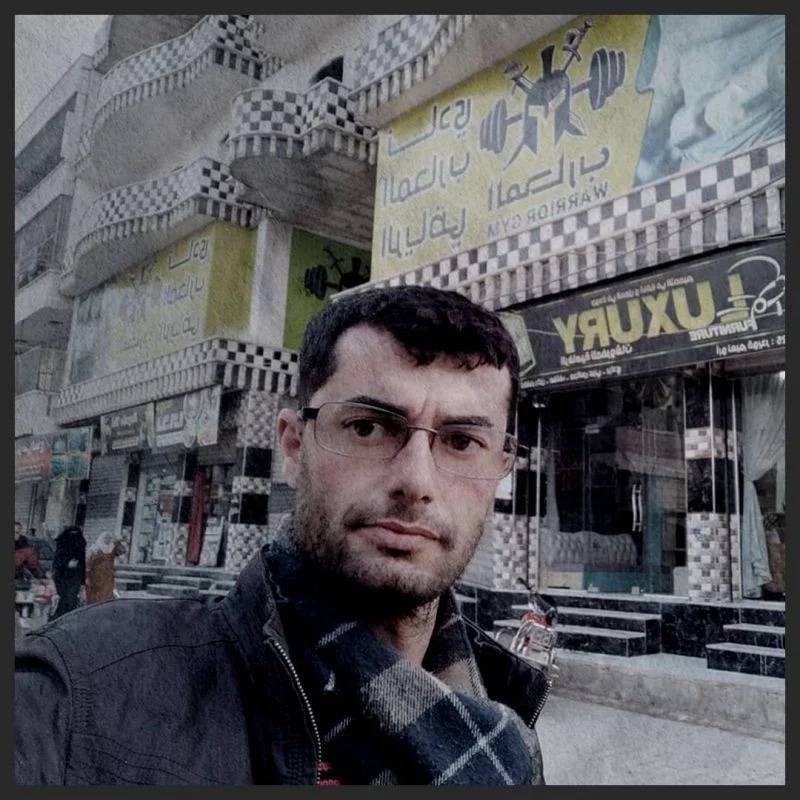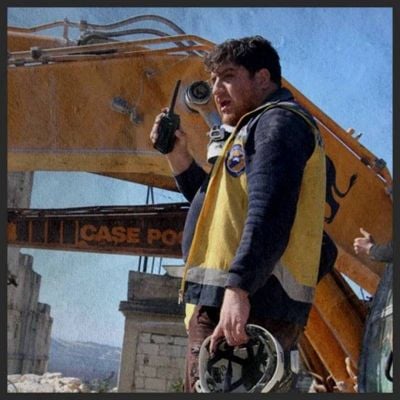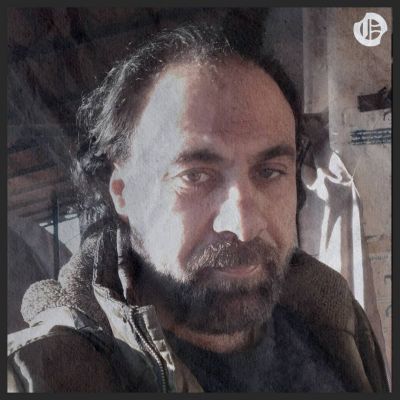
Mohammad works in a veterinary clinic in Idlib. (Courtesy of: Mohammad)
It seemed like yet another curse among many.
After more than a decade of bombing by Bashar al-Assad's regime and its Russian ally, the seizure of much of the area by the jihadist group Hay’at Tahrir al-Sham (HTS), as well as economic and humanitarian crises, Syria’s rebel-held northwest was hit yet again — this time by the earthquake at dawn on Feb. 6.
In areas of northwestern Syria controlled by HTS or Ankara-backed rebels, at least 1,347 people have died, according to a provisional death toll.
Left to their own devices, the White Helmets, a local civil defense group, are still trying to lift survivors from the rubble. Meanwhile, residents have been held hostage for several years by the Syrian government and Russia’s partial blockade of humanitarian convoys into the area.
This week, L'Orient-Le Jour will give the floor to residents of opposition-held northwestern Syria, where 4 million people live, most of them internally displaced by 12 years of conflict.
Today, we hear the testimony of Mohammad, who works in a veterinary clinic.
Testimony collected by Noura DOUKHI.
“Like every day, I woke up very early yesterday [Tuesday] to go and buy bread at the bakery. Since we are a big family, we need a lot of bread. Then I went to work. I was freezing on my bike. Every day I pass buildings destroyed by the earthquake. It is very difficult. And sad. As if 12 years of war were not enough. You can feel the people’s sadness just by looking at them. With all this, I am well aware of how lucky I am to have a job that allows me to live and to support the other 22 members of my family.
“At the veterinary clinic, we are very busy with both the animals that come in after the earthquake and our regular patients. For example, a cat was injured during the earthquake and we took care of her three times. Her owners were very distressed but they took good care of her. I am happy when I see the condition of our patients improving because I can't stand to see animals suffer. Everyone who comes to the clinic talks about what happened to them during the disaster. Many have lost family members. We had material damage here, we lost medicines and the front door was damaged. Four days ago, I did some repairs in the clinic.
“I stayed at the clinic until 5 p.m., then I went to buy food for my family. My default choice is the cheapest items because the high prices of many products prevent me from buying what I would like. So I bought some potatoes and went home.
“When I arrived home, I was greeted by the kids. I have 11 nephews and nieces, they are angels on earth. Six of them lost their fathers during the war and I have to take care of them. There are 23 of us living in a four bedroom apartment. When you think about it, it's miserable, but the price of rent here is extremely high. Still, I'm so happy that the kids are doing well and starting to forget what happened.
“The evening was sad. We remembered the 23 people from our village Marshorin [east of Maaret al-Nouman] who died in the earthquake. I tried to calm my parents who were inconsolable about being displaced. After dinner, I asked if everyone was okay and if they needed anything. I ask them, but they know as well as I do the situation we are in. It makes me sad but I can't even bring them fruit.
“Afterwards, I had a moment of escape. There was a Champions League match on [and] I stayed awake to watch it on my phone. A.C. Milan, my favorite team, were playing. They won, I was happy.
“But after the game, I thought about my situation. I'm 33 years old now and I don't know if I'll ever get married. I can't afford it in my current situation; it's too expensive. The thought of being single for the rest of my life haunts me constantly. And it affects my life tremendously. I would so much like to have my own little family and my own children."
This article was originally published in French in L’Orient-Le Jour

